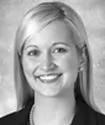Today, Cook County was finally (pending a possible appeal) stopped from trying to impose its Non-Titled Personal Property Use Tax (the "Use Tax"). Following Judge Lopez Cepero's granting of Reed Smith's Motion for Preliminary Injunction in the matter of Reed Smith LLP and the Chicagoland Chamber of Commerce v. Zahra Ali on July 24,1 Reed Smith and the Chicagoland Chamber filed a Motion for Summary Judgment on the merits of the case. Cook County responded to Reed Smith's Motion for Summary Judgment with its own Motion for Summary Judgment. Today, oral arguments were held on the cross Motions for Summary Judgment, and Judge Lopez Cepero ruled from the bench in favor of Reed Smith, the Chicagoland Chamber, and the taxpayers of Cook County.
Today's ruling, which will be issued in written form on Friday, effectively dissolves the Appellate Court Order of October 4, 2013, which had previously stayed the preliminary injuction. However, the Appellate Court's Order stated that Cook County (i) must "segregate but not process all payments received pursuant to the ordinance" and (ii) "may not enforce the penalty provisions as to registration, seek to penalize taxpayers who do not register, or submit returns, or send out returns during the pendency of the permanent injunction proceedings." Thus, while the Appellate Court's Order technically required taxpayers to file Use Tax returns and submit payments for the September reporting period (due October 20, 2013), it did not provide Cook County with any authority to process the Use Tax payments made by taxpayers, or impose penalties on those taxpayers who failed to file returns or pay the tax. There is now, in effect, a permanent injunction due to Judge Lopez Cepero's ruling, as the Stay was only in effect pending the outcome of the trial court proceedings.
Had Cook County succeeded with its Motion for Summary Judgment, taxpayers would have faced the decision of whether to begin paying the Use Tax with the October 20 filing, or risk possible penalties and interest for non-payment if the Use Tax is not ultimately declared to be an illegal tax (see our prior Alert for a discussion of taxpayer options with regard to the Use Tax). Once Cook County appeals the Circuit Court's Order, as is expected, it could ask the Circuit Court or the Illinois Appellate Court, once again, to stay the Order and allow it to continue collecting taxes during the appeal.
Cook County's budget for 2014 must be finalized before the end of November, so today's decision will likely have an impact on the county's budget deliberations. Even if the Appellate Court were to grant the county a stay, the county's budget would remain fiscally suspect if it continues to rely on the Use Tax, until a final ruling by the Illinois Appellate Court on the merits of whether the Use Tax violates: (i) the Illinois Counties Code disallowing a home-rule unit from imposing a use tax on the selling or purchase price; (ii) the Illinois Constitution's prohibition against imposition of an ad valorem tax on personal property; and (iii) the Commerce Clause of the United States Constitution.
As discussed in another previous Alert, Reed Smith has filed an additional challenge to the County Refund Ordinance, on behalf of the Chicagoland Chamber of Commerce, requesting the court to clarify that taxpayers can obtain refunds if the Use Tax is ultimately declared illegal. This additional challenge was not a subject of today's hearing, and will be addressed by the Circuit Court after all appeal rights with respect to today's Circuit Court decision have been exhausted or allowed to lapse.
For more information on the Cook County Use Tax and taxpayer challenges to the tax, contact the authors of this Alert or another member of the Reed Smith State Tax Group. For more information on Reed Smith's Illinois tax practice, visit www.reedsmith.com/iltax.
Footnote
- Reed Smith, LLP and Chicagoland Chamber of Commerce v. Zahra Ali and the Cook County Department of Revenue, Cook County Circuit Court, Docket No. 2013 L 050454. While Judge Lopez Cepero entered an oral Order from the bench at the July 24 hearing, a written Order was entered August 1, 2013.
This article is presented for informational purposes only and is not intended to constitute legal advice.




